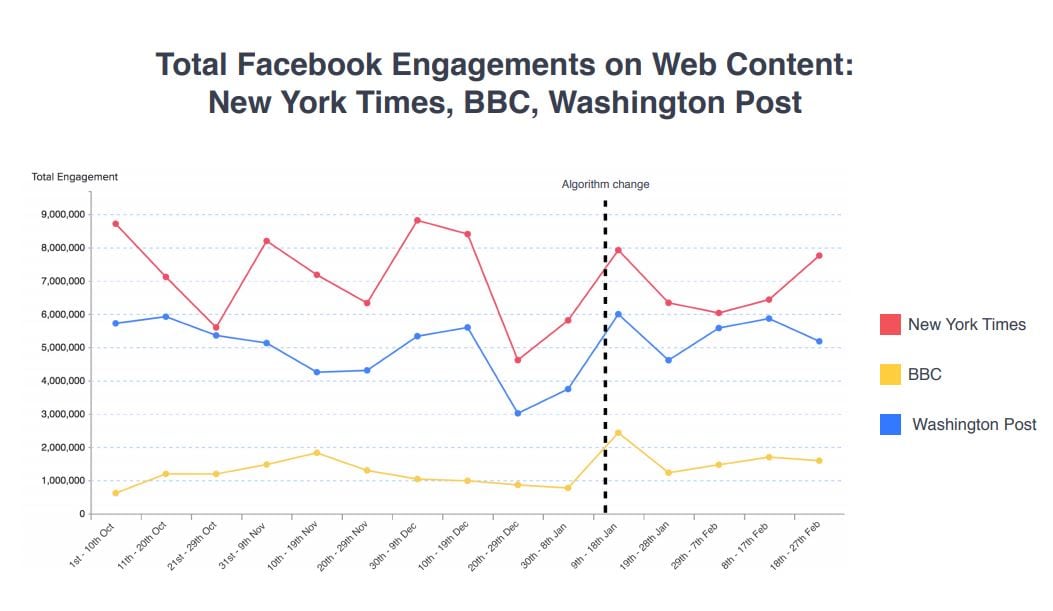Given Facebook’s sizable power in driving traffic to news sites, its early 2018 announcement that it was changing how stories are surfaced in the News Feed was a source of concern for many publishers. Following the rollout of these changes, the tracking software NewsWhip used its proprietary technology to quantify the impact of the algorithm changes, which it published in a report in late March 2018.
The primary takeaway – measured by NewsWhip’s Chrome browser extension – should not come as a surprise to most news publishers: “What’s going to go viral, will go viral.” Their advice is to “focus on creating high-quality content.”
Additionally, although the stated goal of the change to the algorithm was to focus on posts from friends and family (thereby minimizing the role of news in the News Feed), NewsWhip found that more than half of the 100 most-engaging articles on Facebook in March 2018 could be categorized as “hard news/current events” and 53 out of 100 were from general news publishers.

Beyond showing that consumers care about high quality news, the report provides some new context around how Facebook performs as a sharing platform and what publishers may want to do to continue to benefit from it. In the new algorithm, the data shows:
- Roughly half of publisher engagement comes from “personal sharing,” rather than sharing on brand pages, and 80 percent of the sharing comes from readers.
- Misinformation tends to be spread because it taps into reader emotions, especially “Feelings of conspiracy, outrage and fear, which can spread like wildfire.”
- Engagement rates for news publishers did not dramatically drop following the algorithm change, contrary to expectation.
As NewsWhip explains in the report, “Whether Facebook intends itself to be a media platform or not, it’s still a place where people come to see what their friends and family are talking about each day, news included. “ The full report, available here, is worth diving into, as it provides a number of lenses through which to view the changes, including assessing how reporters’ page engagement with their readers has changed.
